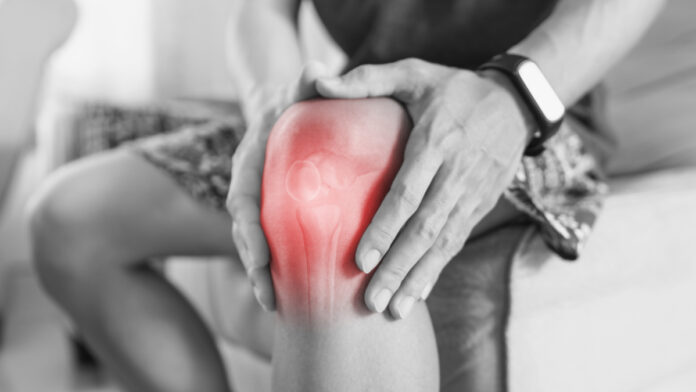You most likely have heard the word ‘supplements’ throughout recent years. Especially as you age, the word supplements become more and more a part of your routine vocabulary. If you are experiencing joint pain in your knees, you must now integrate joint supplements into your daily well-being regimen. This article aims to understand the basic joint supplements that have helped athletes, seniors, and anyone looking to improve their joint health.
Top Reasons for Joint Pain in Knees
Before we list out a bunch of supplements, let’s take a look at why we experience joint pain in our knees and why joint supplements are the best option when thinking ahead toward long-term knee pain relief. Our knees are the most common for battling chronic joint pain. The most common culprits are arthritis and osteoarthritis and while your doctor is likely to prescribe a pain reliever it is only a temporary solution for short-term relief. Here is a list of the most common knee conditions and which joint supplements are the best for long-term results.

Knee Injuries
No matter the age, when you injure your knee it is likely going to continue to cause problems for years to come. Most knee injuries affect any of the elements that constitute a knee joint: ligaments, cartilage, tendons, bones, or bursae (small sacks of joint fluid). If you have experienced any of the following knee injuries, you most likely will benefit greatly from an additional joint supplement.
Knee Fracture
Have you ever broken your knee cap or fractured it while playing sports as a kid, or minor fractures could be caused by your daily jogging routine. If you are experiencing great amounts of pain and have not been diagnosed, we recommend seeing your doctor and not waiting for it to heal on its own. A healed untreated knee fracture can cause severe complications in your future joint health.
ACL Injury
There are 4 ligaments that connect your shinbone to your femur (thigh bone). The most delicate and most commonly torn among athletes is your ACL (Anterior Cruciate Ligament). Recent or old tears are likely to cause joint pain in your knees and can be treated with any of the supplements listed below.
Knee Bursitis
Basically, this means inflammation of the knee joints commonly diagnosed by pain and swelling around the knee cap. Bursae is the cushion of fluid that protects your knee joint by preventing friction when in movement. This cushion allows ligaments and tendons to have a healthy frictionless relationship. The most common reasons for bursitis are falling, prolonged and frequent bending down, or kneeling at later stages in life can cause this inflammation.
Patellar Tendinitis
Patellar tendinitis, A.K.A jumper’s knee is caused by frequent jumping and placing unnecessary pressure on the knee cap. Tendons are connective tissues that attach muscles to bones. Tendinitis is the inflammation of a tendon or tendons around the knee cap. The patellar tendon attaches your kneecap to your shinbone and can become sore, inflamed, and injured when you run, jump, or kick the wrong way.
Dislocated Knee Cap
Meaning that your knee cap is not where it is supposed to be! Usually, this injury is associated with a tear in your ACL but not always. This will cause severe pain and inflammation along with possibly losing the use of your leg for walking.
Meniscal Tear
Have you ever twisted around quickly or turned suddenly and felt a stabbing pain in your knee? This is most likely a meniscal tear. The meniscus is tough, elastic cartilage holding together your shinbone and your thigh bone. Similar to shocks or suspension in your car, these are the shock absorbers for your knee.

Arthritis & Knee Pain
There are numerous types of arthritis, for the purpose of this article we will focus primarily on arthritis associated with chronic knee pain, and the joint supplements that can help each one is listed right after.
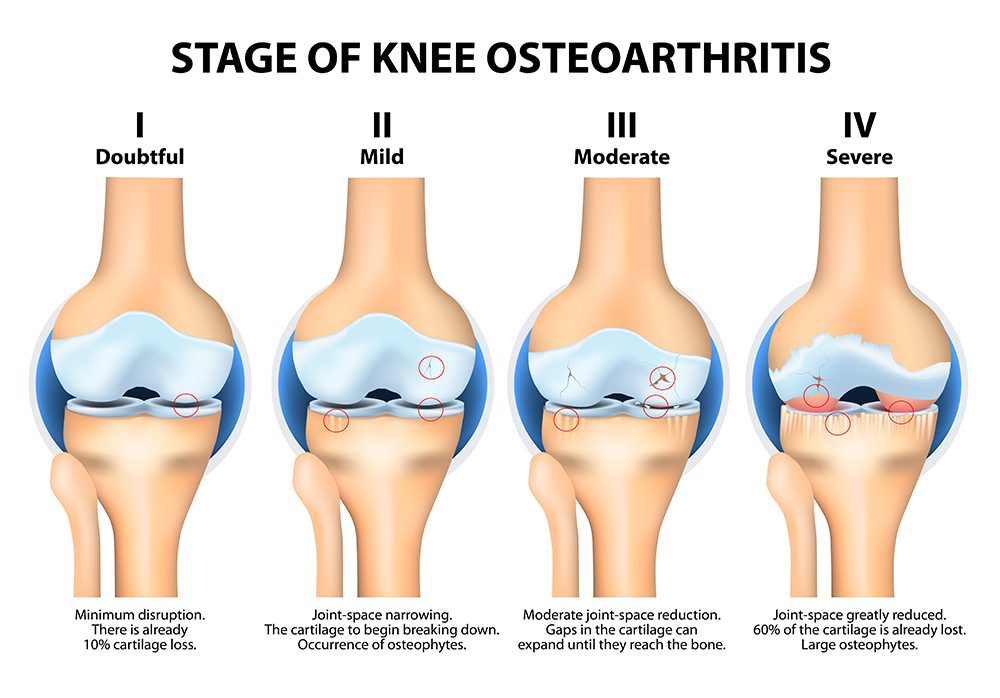
Osteoarthritis
Osteoarthritis, additionally known as degenerative arthritis, is a circumstance where the knee cartilage diminishes with excessive use and age. The bone density and bone mass additionally decrease as well. This is the most common form of arthritis affecting nearly 25% of people residing in the United States. Osteoarthritis primarily affects joints that endure large amounts of weight and is predominantly focused on the knees. The connective tissues that stabilize the joint and connect muscle mass to bones become affected. Signs and symptoms of osteoarthritis include ache, stiffness, tenderness, grating sensation, swelling, bone spurs, and loss of flexibility.
Rheumatoid Arthritis
This is an autoimmune condition. It is the most destructive form of arthritis and can affect any joint in your body. It is chronic and varies in severity and frequency in people with the condition.
Gout
This type of arthritis happens when there is a build-up of uric acid in your joints. It mostly affects the fingers and toes but can also affect your knees. Pseudogout specifically targets the knee joints similar to regular gout. However, it is caused by calcium crystals that develop in the synovial fluid in the joint.
Septic Arthritis
Some arthritis is due to an infection and can be treated by your doctor. When the joints in your knee become infected you are likely to experience fever, swelling, tenderness, and redness around the knee cap or behind the knee. Not likely a result of trauma but if not treated can cause severe and long-term damage to your knees.
Best Joint Supplements for your Knee Pain
The time has come to get to how you can treat your chronic knee pain with joint supplements! Our health expert recommends using any of the following supplements along with a routine physical activity to enhance knee flexibility. Whether you are experiencing minor or major joint pain these joint supplements will work for you. We made sure to ask consumers, doctors, and health experts in order to bring you the best possible joint supplements for your knee pain. Please leave us your comments if you have already used any of these before.
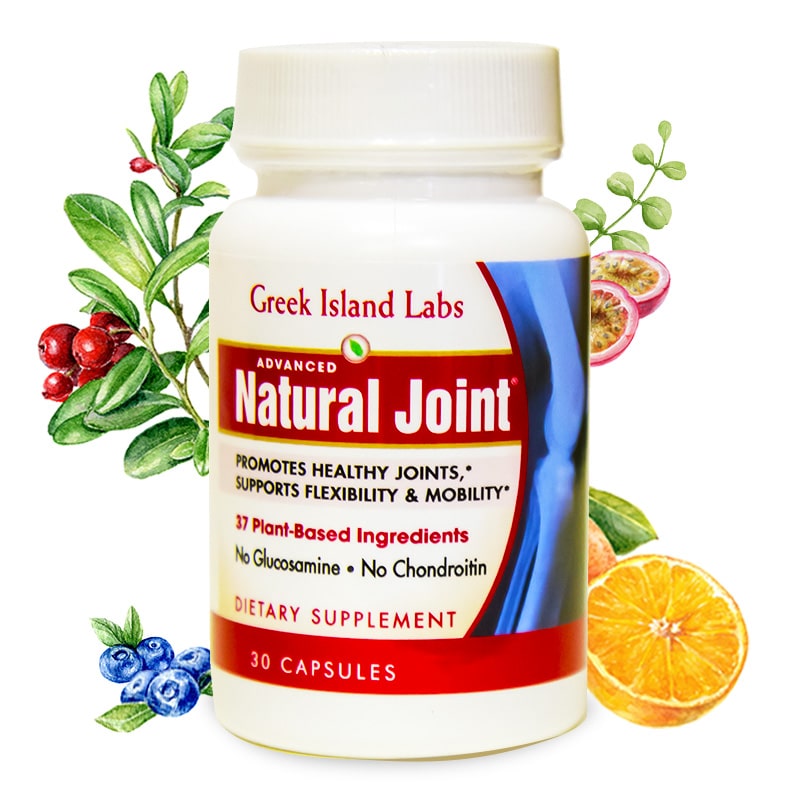
Natural Joint
If you are looking for a long-term joint supplement for chronic knee pain, we recommend Natural Joint as it is the only all-natural pill supplement that is 100% plant-based. Natural Joint also has a clinical study that reports up to 82% experienced a significant decrease in joint pain.
Recommended Dosage: Take one capsule per day.
The health benefit of this joint supplement is that it improves joint function while giving the area anti-inflammatory effects without using any chemical compound. This joint supplement not only works on your knees but will also benefit all joints throughout the body. www.NaturalJoint.org
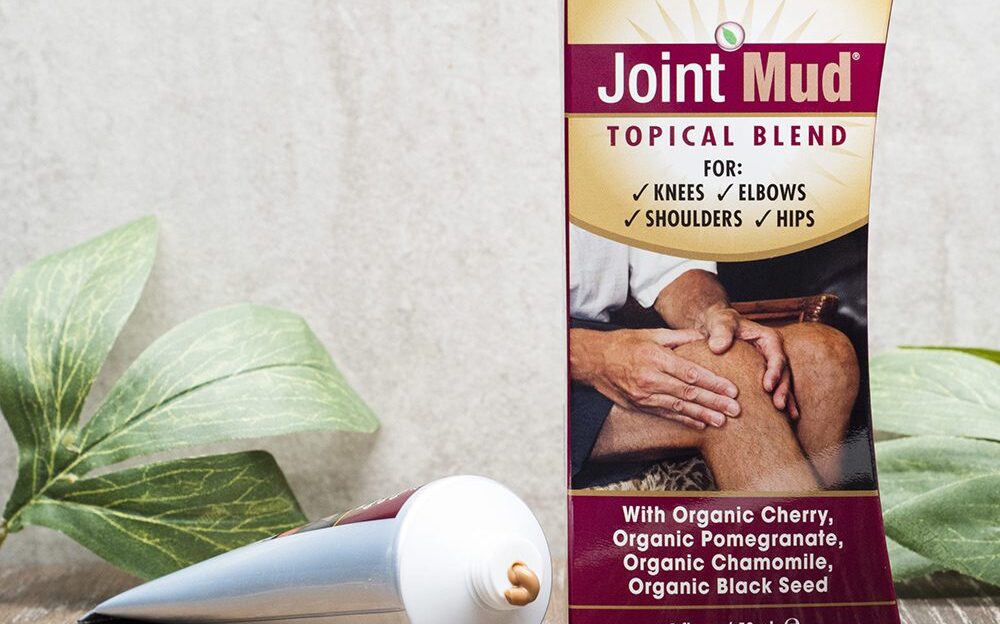
Joint Mud
If you are not a fan of taking joint supplements in pill form Joint Mud might be the right fit for you! You can easily apply this product topically in the areas where most joint pain is experienced. Similar to Natural Joint, Joint Mud is derived from 27 organic plant-based ingredients and is the most natural way of relieving joint pain without the worry of pesky side effects.
Joint Mud is backed up by a clinical study that reports an average decrease in joint pain by 74% within the first 18 minutes after applying. You can apply Joint Mud to your knees, hips, shoulders, elbows, neck, and hands. Joint Mud can also help you in treating arthritis pain that is usually associated with arthritis joint pain.
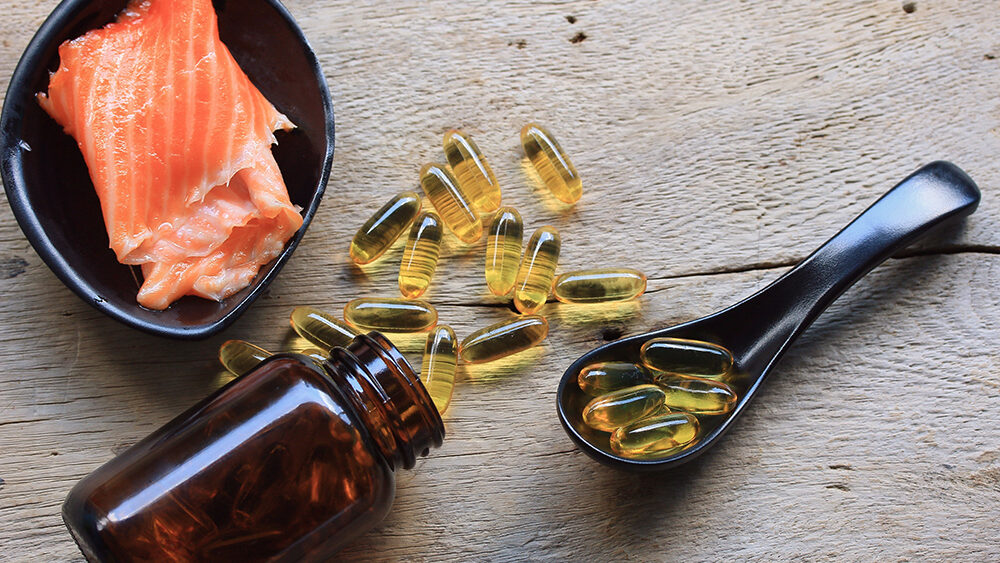
Fish Oil & Fatty Acids
While this will not remove your joint pain, it is a vital component of overall joint health and wellness. Due to the Omega 3 Fatty Acids, fish oil is one of the top joint supplements on the market which combats inflammation associated with chronic knee pain. A study reported that people suffering from osteoarthritis benefited from taking 200mg of EPA and 400mg of DHA every day for 16 weeks. At the need of the trial, they experienced lesser chronic arthritis pain.
Fish oil supplements doses usually range from 300mg to 1000mg daily. However, it is best to choose fish oil supplements that contain a minimum of 500mg of combined EPA and DHA. EPA (eicosapentaenoic acid) and DHA (docosahexaenoic acid) are fish oil’s active ingredients.
Asides from fish oil, Omega-3 fatty acids can also be found in other foods like walnuts, dark-green leafy vegetables, flaxseeds, soybean oil, canola oil, and other seafood.
Vitamin D – The Sun is Shining!
While this is not a joint supplement for relieving your joint pain, it is a great way to boost the bone density that makes up your joints. By ensuring the proper daily dose of vitamin D, you will be less likely to injure your joints or knees. It helps your body absorb calcium and phosphorus which are essential for building strong and healthy bones.


